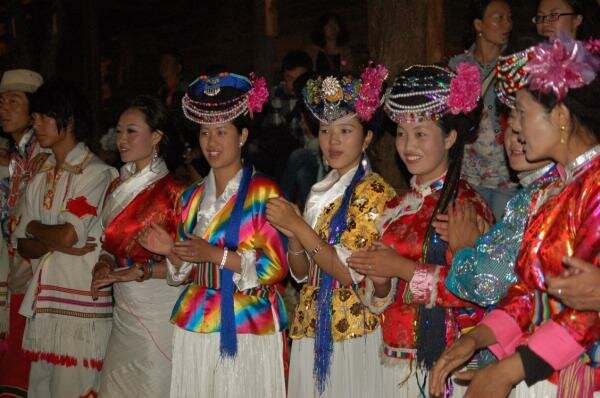Wherever I Leave My Hat
The Mosuo people of China don’t believe in marriage – they literally walk in and out of each other’s lives

In the Mosuo society of northwestern Yunnan, children are under the custody of their mother, take their mother’s surname, and live in their mother’s household. One woman, the “grandmother”, though not necessarily the oldest of her generation, but the strongest, will become the head of the household. In short, the women in the family run the show.
What do the men do? A Mosuo man we met said: “In the Mosuo culture, it is the women’s world, but it’s the men’s paradise.”
Men have no say in the household, but they do have to go out and work, though I’m not too sure what work they have to do. They do not have to manage their children, although they are very much part of their children’s lives. They have no say in their own household. They have no part in the kitchen or in managing finances. Isn’t this then, as the local said, “men’s paradise”?
Another interesting fact is that the Mosuo society does not subscribe to a system of marriage that many in Asia are used to – man and woman marry; woman moves into man’s household; man is the head of the household. Instead, the Mosuo man and Mosuo women do not marry and believe in a “walking marriage”.
A Mosuo woman at her coming-of-age (13 years) gets her own room. She meets a suitor and if he’s interested, he will go to her room at night, and hang his hat outside the door to indicate that someone is in her room. He must then leave by the morning. This happens every night during their courtship. The day the man is no longer interested in the woman, he will not show up. The day the woman is no longer interested in the man, she closes the door and does not allow him to enter. As simple as that. Hence the term “walking marriage” was borne from the action of the man walking to his partner’s room every night and leaving in the morning.
This may sound like the optimum setting for promiscuity, but in actual fact, apparently some 90% or so Mosuo people stay faithful to their partners once their relationship has been stabilised.
Historically, the Mosuo people became a matriarchal society as a means of survival. Every person in a Mosuo household, which typically has 10 to 20 people (sometimes more), has a role. In the event of a union between man and woman in the Mosuo culture, or rather the stabilising of a relationship since the idea of “marriage” does not exist, neither man nor woman will leave the household. This means that each household will not lose a particular role overnight and will remain strong in numbers in the face of adversity. Many centuries later, this culture remains almost the same.
I had first heard of the Mosuo people in a documentary I had chanced upon on TV some years back and was most intrigued by its culture and the idea of “walking marriage”. Having known of their existence, it was most insightful for me to get a taste of the Mosuo culture, interact with actual Mosuo people and see their stories come to life.
And here’s one ethnic minority group in China slightly better understood. Now another 54 to go.
This post was originally published on Wanderfolly. Daphne Chui is a globe-trotting Singaporean who visited China recently.

















